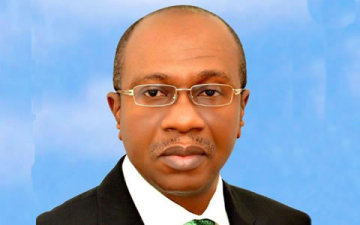L
LequteMan
Guest
Nigeria- Financial experts and businessmen, on Tuesday, said the Central Bank of Nigeria (CBN) limit on cash withdrawal via the Automated Teller Machine (ATM) may lead to a disruption of cash flow.
They spoke against the backdrop of the recent CBN policy which pegged the daily cash withdrawal from the ATM at N60,000 from N150,000.
They told the News Agency of Nigeria (NAN) in Lagos that the policy was a contradiction of the cashless regime earlier espoused by the apex bank.

An economist, Dr Evans Osabuohien, said that the policy was a contradiction of the cashless policy of the CBN.
"The policy will lead to hardship in the economy and it will affect the confidence of businessmen in the banks," Osabuohien said.
"I think that this policy may force people to keep their money in their houses with the attendant security risks," the don said.
Another financial expert, Professor Sheriffadeen Tella, believed that the policy was only going to be a temporary measure.
According to him, the directive is not a major instrument for the strengthening of the naira.
Tella, who lectures at the Department of Economics, Olabisi Onabanjo University, Ago Iwoye, Ogun State, said the policy was an attack on the CBN cashless policy.
"We are not running a full cashless economy yet. The CBN would have raised the bar higher for those who want to make huge transactions," Tella said.
"If there is no cash flow, it stifles demand, productivity will fall and this will lead to unemployment," the don said.
Mr Okechukwu Udensi, a businessman, said that the policy would make financial transactions very difficult and time-consuming.
They spoke against the backdrop of the recent CBN policy which pegged the daily cash withdrawal from the ATM at N60,000 from N150,000.
They told the News Agency of Nigeria (NAN) in Lagos that the policy was a contradiction of the cashless regime earlier espoused by the apex bank.

An economist, Dr Evans Osabuohien, said that the policy was a contradiction of the cashless policy of the CBN.
"The policy will lead to hardship in the economy and it will affect the confidence of businessmen in the banks," Osabuohien said.
"I think that this policy may force people to keep their money in their houses with the attendant security risks," the don said.
Another financial expert, Professor Sheriffadeen Tella, believed that the policy was only going to be a temporary measure.
According to him, the directive is not a major instrument for the strengthening of the naira.
Tella, who lectures at the Department of Economics, Olabisi Onabanjo University, Ago Iwoye, Ogun State, said the policy was an attack on the CBN cashless policy.
"We are not running a full cashless economy yet. The CBN would have raised the bar higher for those who want to make huge transactions," Tella said.
"If there is no cash flow, it stifles demand, productivity will fall and this will lead to unemployment," the don said.
Mr Okechukwu Udensi, a businessman, said that the policy would make financial transactions very difficult and time-consuming.

